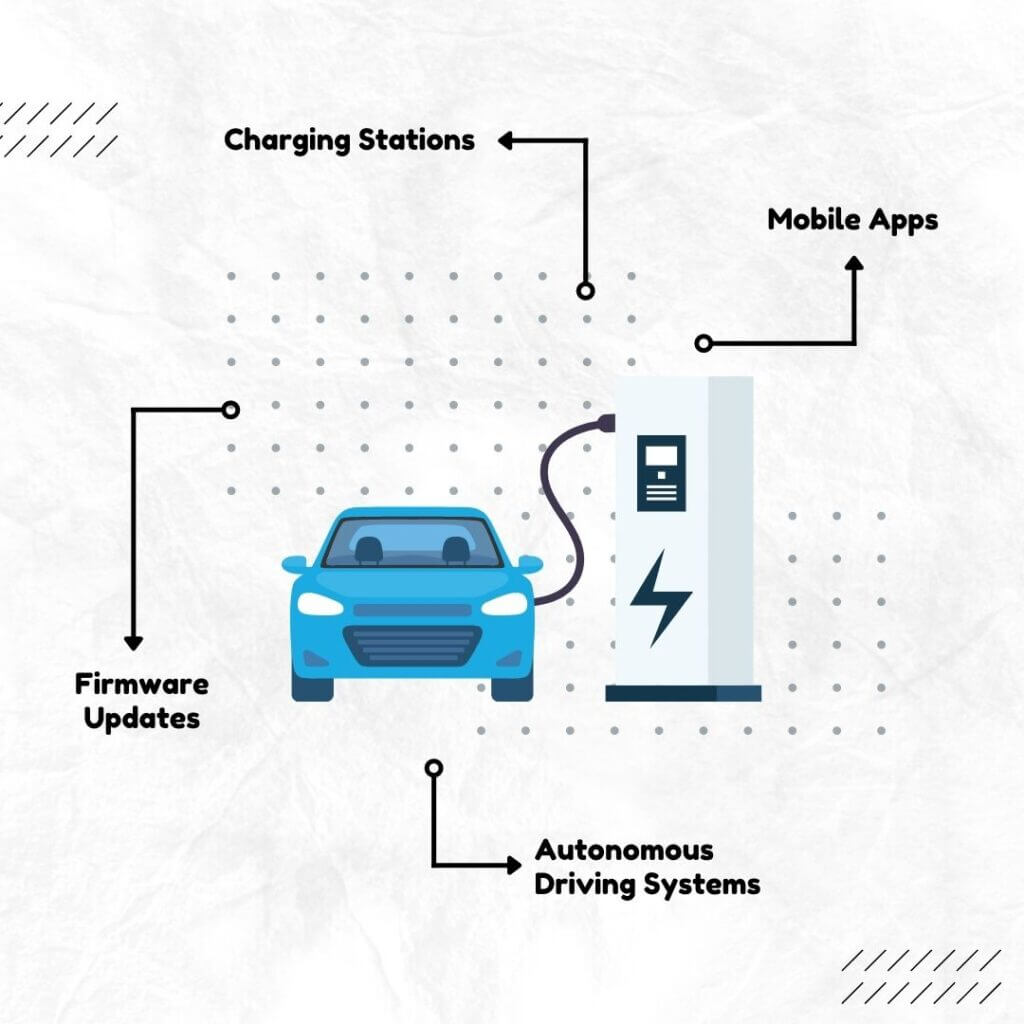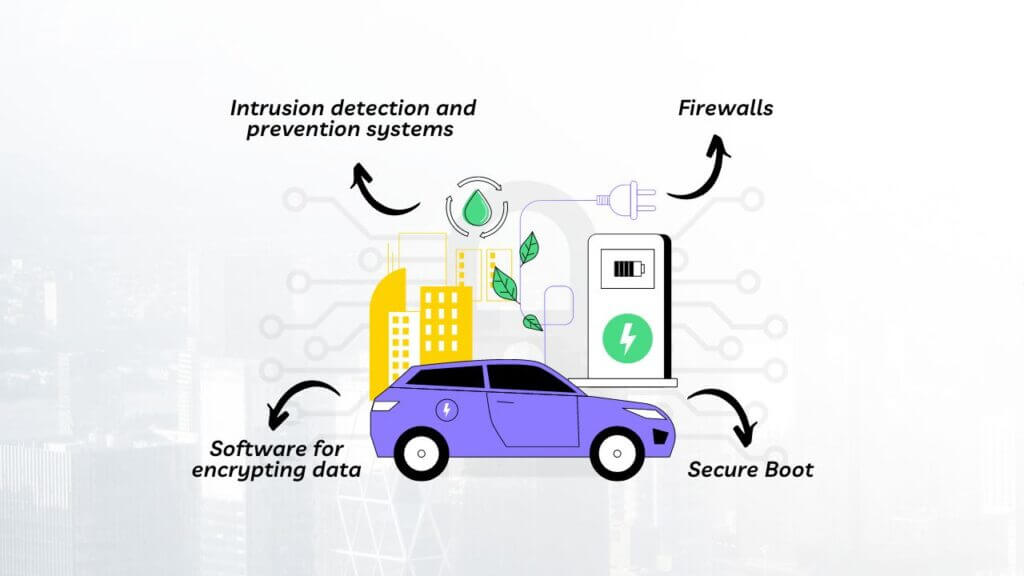Are Electric Vehicles (EV) Safe from Hackers
Electric vehicles (EV) are becoming increasingly popular around the world. Electric vehicles are rapidly becoming a prominent fixture of daily life due to technological innovations and environmental responsibility that make them appealing to buyers. However, as with any new technology, there are safety concerns, particularly regarding cybersecurity. The consequences of your new electric vehicle being hacked could be disastrous. In this blog post, we will look into the question, Are electric vehicles safe from hackers?
Are electric vehicles vulnerable to hackers?
While electric vehicles have numerous advantages, there is concern that they may be vulnerable to cyberattacks. These vehicles, like any other connected device, are susceptible to cyber threats. Electric vehicles are becoming more connected and autonomous, making them vulnerable to cyberattacks such as hacking, malware, and other malicious activities. Unauthorized access to vehicle systems, data theft, and even remote control of the vehicle are all potential risks.
One of the most serious concerns is the possibility of hackers exploiting the wireless connections use by EV. Many EVs connect to the internet, other vehicles, and charging stations via wireless communication protocols. These connections could be use to hack into the system of an EV and gain control of the vehicle.
The dangers of EVs are not merely hypothetical. Two researchers demonstrated in 2015 that they could hack into the systems of a Jeep Cherokee and take control of the vehicle’s brakes, steering, and acceleration. Although this was not an EV, the same principles could be applied to hack into an EV’s systems.
How could electric vehicles be hacked?
Electric vehicles are increasingly being connected to the internet, which provides numerous benefits such as over-the-air software updates and the ability to remotely monitor the vehicle’s status. However, it also exposes potential security flaws that hackers could exploit. Here are some scenarios in which electric vehicles could be compromised:
1. Charging Stations
Charging stations are used to recharge the batteries of electric vehicles. These charging stations are internet-connected and may be vulnerable to cyber-attacks. Hackers could potentially gain access to the charging station’s network and the vehicle’s systems.
2. Mobile Apps
Many EV owners use mobile apps to remotely monitor the status of their vehicle and control features such as climate control. These mobile apps may be vulnerable to cyber-attacks, allowing hackers access to the vehicle’s systems.

3. Firmware Updates
Firmware updates are used by electric vehicles to fix bugs and add new features. These updates, however, may be vulnerable to cyber-attacks. Hackers may gain access to the vehicle’s firmware and modify it in order to gain control of the vehicle’s systems.
4. Autonomous Driving Systems
Many electric vehicles have self-driving systems that navigate using sensors and cameras. These systems may be vulnerable to cyber-attacks, causing the vehicle to act weird or even crash.
How are automakers addressing the cybersecurity risks associated with EV?
Automakers are taking cybersecurity risks seriously and are working to address them. Automobile manufacturers are implementing cybersecurity measures to protect their vehicles from cyber threats in order to mitigate these risks. These measures include
- Data transmission encryption
- Intrusion detection and prevention systems
- Secure boot processes
- Over-the-air security updates
Furthermore, regulatory bodies are developing cybersecurity standards for connected vehicles, such as the US National Highway Traffic Safety Administration’s Cybersecurity Best Practices for Modern Vehicles.
Automobile manufacturers are taking precautions to address cybersecurity threats. Ford, for example, establishes a cybersecurity team dedicates to identifying and addressing vehicle vulnerabilities. Similarly, General Motors establishes a cybersecurity programme to protect its vehicles from cyberattacks.
While no system is immune to cyberattacks completely, automakers are working to improve the security of electric vehicles in order to protect drivers and passengers from potential cyber threats. Electric vehicle owners must stay inform about potential security risks and take appropriate precautions to protect their vehicles and personal information, such as updating software and using secure passwords.
How Electric Vehicles can be secured using Software Solutions?
As EVs become more common, the need for security software to safeguard them from cyber threats grows in importance. Here are some software solutions that can be implemented to safeguard electric vehicles:

1. Software for encrypting data
This type of software encrypts data transmission between the car and external systems such as charging stations or mobile apps. Encryption renders data unreadable to anyone who does not possess the decryption key, aiding in the prevention of data leaks.
2. Intrusion detection and prevention systems
These systems scan the network traffic of the vehicle for indications of malicious activity, such as attempts to hack or unauthorize access attempts. When identifying such activities, the system can stop or notify the driver.
3. Firewalls
A firewall, like in a computer network, can use to prevent unauthorize entry to the vehicle’s network. It can also use to restrict which systems or devices can link to the vehicle.
4. Autonomous Driving Systems
This ensures that only authorized software is allowed to operate on the vehicle’s systems, preventing malware or other malicious software from taking control of the vehicle.
To safeguard EV from cyber threats, a multi-layered security strategy is required. The solutions discussed above can be combined to form a complete security system for an electric vehicle.
Conclusion
In conclusion, electric vehicles are not immune to cyber threats, as they rely heavily on electronic components and communication networks. However, electric vehicle manufacturers and researchers are working to improve electric vehicle security against cyber threats. As electric vehicles become more common, it is critical to remain vigilant about cybersecurity risks and to take preventative measures to protect these vehicles from potential threats. Finally, the advantages of EV, such as improved road safety and reduced environmental impact, outweigh the risks associated with cyberattacks. With ongoing efforts to improve electric vehicle security, these vehicles are likely to become even safer and more secure in the future.
If you would like to go digital with your business, we can help you with:
Web Application Development
Progressive Web Application development
Mobile Application Development
Application Maintenance
Technology and Database Migration services
Software Consultation
